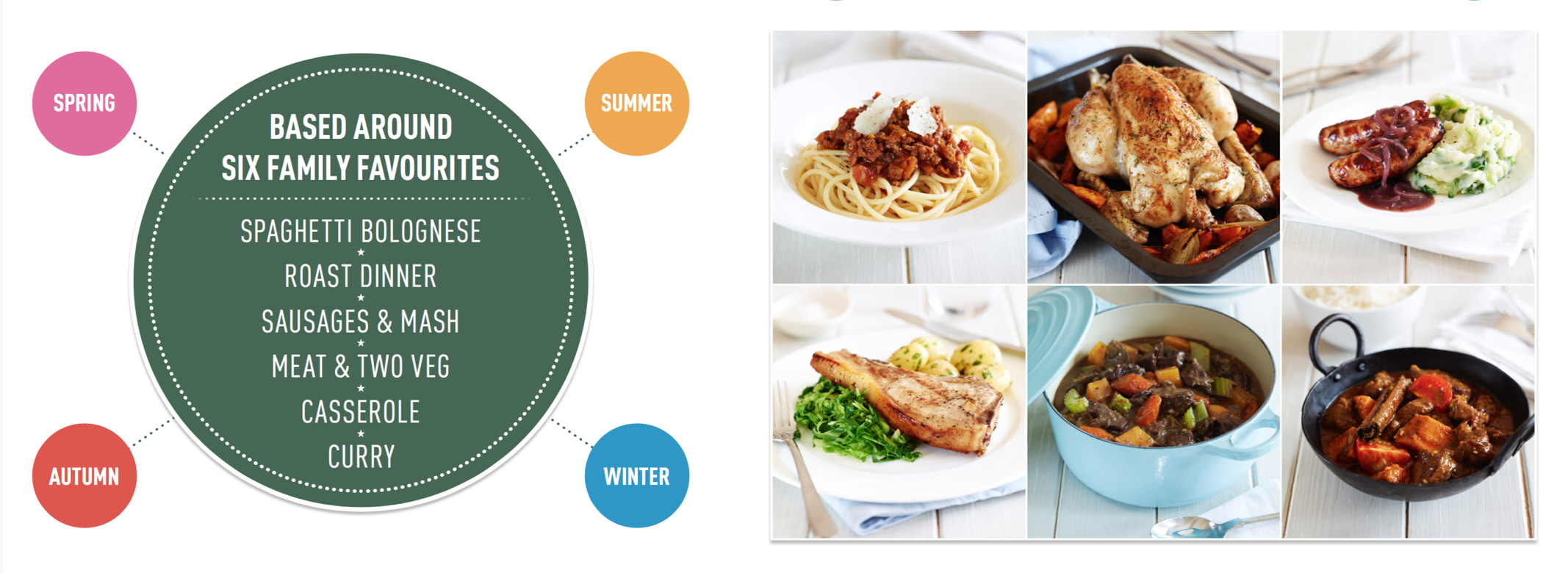Esmee Fairbairn Foundation
Helping families eat more veg
Background
We all want to eat more healthily but for many people life gets in the way. Funded by the Esmee Fairbairn Foundation, Dabble with your dinner helps British families eat more vegetables by incorporating them into the meals they cook every day.
Insight
Eating more veg is the bullseye when it comes to encouraging families to make a positive change to their diet. Our research has shown that people know they should be eating more (almost everybody is aware of the 5-a-day message) but habits are hard to change. Families tend to shop, cook and prepare meals in a routine way and actually cook a very small repertoire of well-known dinners.
90% cook the same meals over and over again and recipes are only used for special occasions.
Intervention
It’s clear that any intervention in this routine would need to be really easy to action so we decided to focus on six of the most popular family meals, and provide simple tweaks to add veg to the dishes people already cook every day. Like adding courgette to your spaghetti Bolognese in the summer or putting some leeks in your mash in the winter.

Implementation
Our approach involved using the reach of large public facing partners to get help to families at the most appropriate time. We developed core components for the project that included seasonal one-step tips to add veg to each of the six most popular meals that could be built on and incorporated into partner activities. A website made various open source materials available including designs and photography.


Impact
The idea has caught the attention of stakeholders in Govt. and the food industry and has reached millions of consumers. Many large businesses and charities have been actively involved in promoting tips, including Tesco, Asda, Co-op and Compass, with many hundreds of small businesses/organisations engaged too.
An Asda store trial using point-of-sale tips and leaflets saw 82% of customers say they would be likely to try the tips at home.
Additionally the idea was featured on the BBC’s “Trust Me I’m A Doctor” programme.
